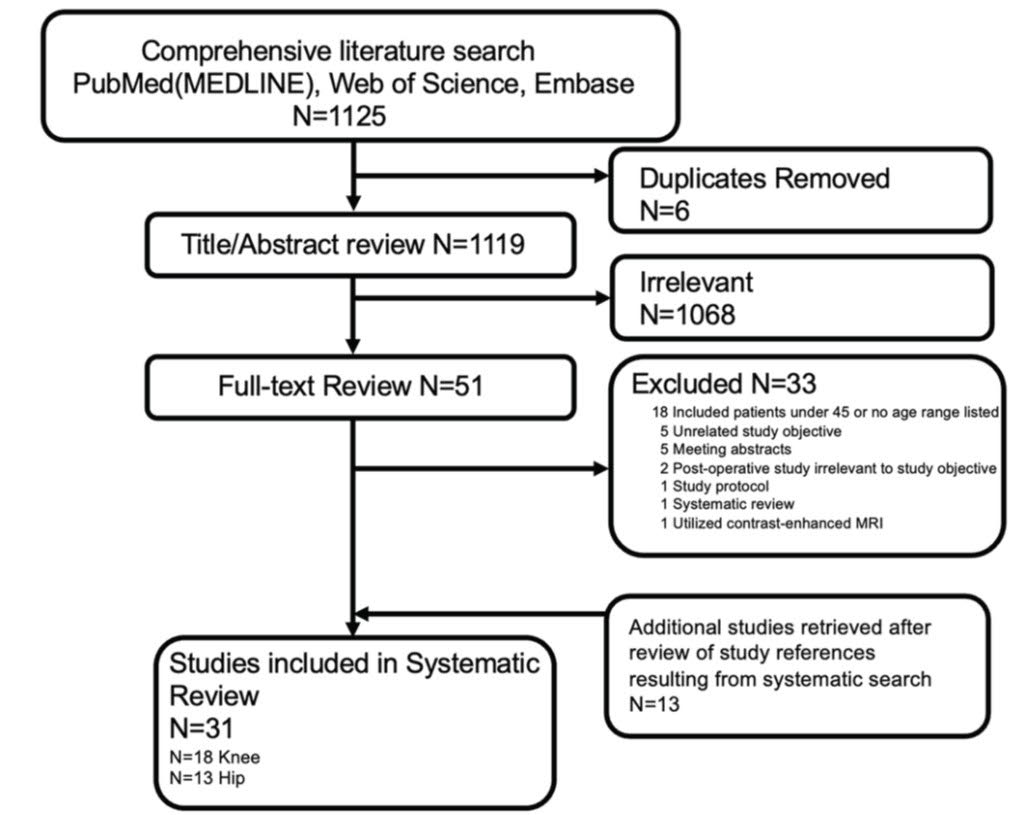MRI May Be Best for Evaluating Hip, Knee Pain in Patients With Osteoarthritis

Osteoarthritis rather than age may play the greatest role in determining utility of MRI for patients 45 years old and older with hip or knee pain, according to the American Journal of Roentgenology (AJR).
“Several structural lesions on knee MRI correlating with symptoms may represent imaging biomarkers used as treatment targets,” wrote first AJR author Erin F Alaia, MD from the radiology department at NYU Langone Health.
Alaia et al. performed a systematic review and meta-analysis of PubMed, Web of Science, and Embase through October 3, 2022, to identify original research pertaining to whether MRI-diagnosed hip or knee pathology in patients 45 years old and older correlates with symptomatology or benefits from arthroscopic surgery. After extracting publication information, study design, cohort size, osteoarthritis severity, age range and mean, measured outcomes, minimum follow-up length, and MRI field strength, study methods were appraised via NIH Quality Assessment Tools. Of the 1,125 potential studies the AJR authors identified, 31 (18 knee, 13 hip) met the inclusion criteria. Knee studies (10 prospective, eight retrospective) included 5,907 patients (age range, 45–90 years); hip studies (11 retrospective, two prospective) included 6,385 patients (age range, 50–85 years).
Ultimately, meniscal tears, frequently diagnosed in this population, were less likely to be symptom generators and to respond to arthroscopic treatment in the presence of osteoarthritis, suggesting a diminishing role for MRI in this setting. And for the hip, MRI diagnosis of labral tear, chondral lesions, or structural findings associated with femoroacetabular impingement may have clinical importance in selected patients without advanced osteoarthritis, “though comparatively less when compared with younger patient populations,” the authors added.
